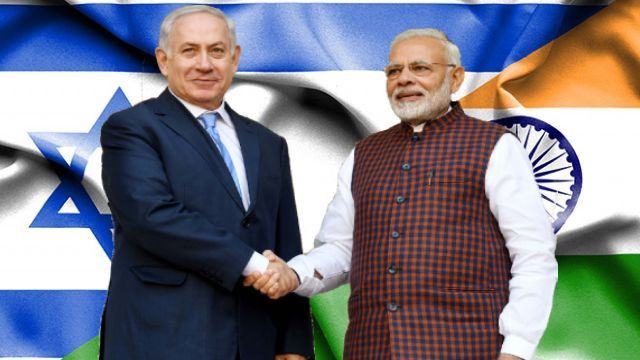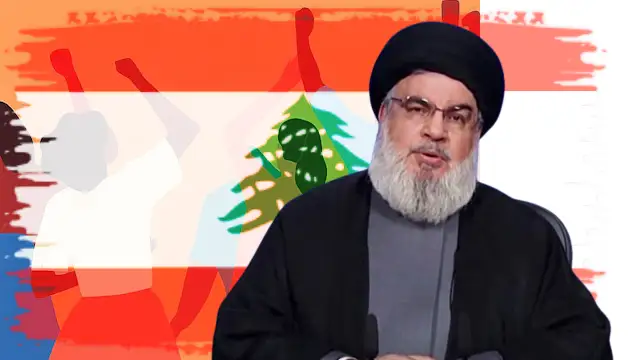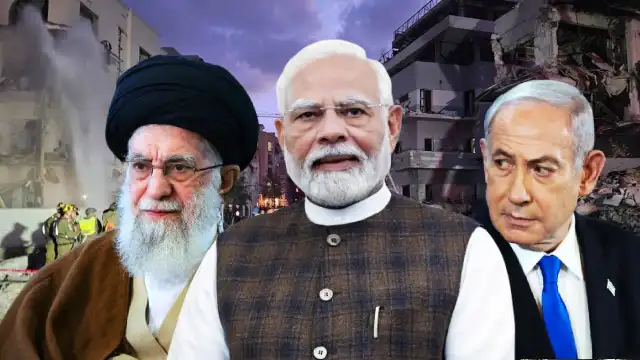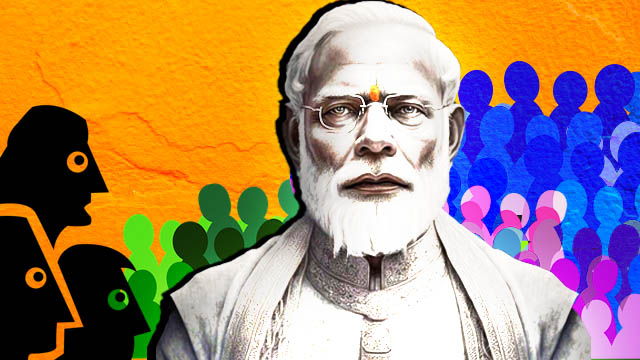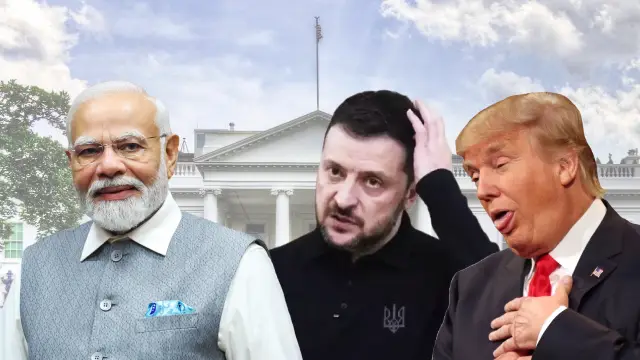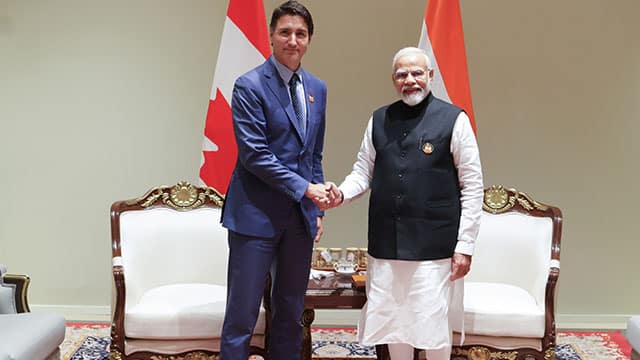As the Israel-Palestine conflict intensifies, the future of the India-Middle East-Europe Corridor (IMEC) project, which was announced during the side-lines of the G20 Summit in New Delhi on September 9th, appears uncertain. India’s support for Israel in the conflict, which is 180 degrees opposite to its officially stated position, may have severe geopolitical implications, and IMEC may be one of its victims.
While Prime Minister Narendra Modi was swift in supporting Israel following Hamas’s launch of Operation Al-Aqsa Flood on Saturday, October 7th, the countries he and US President Joe Biden rely upon to participate in the IMEC project, especially Saudi Arabia, are now on the crossroads due to the Israel-Palestine conflict.
Saudi Arabia’s resentment
Saudi Arabia is an important part of the IMEC project. According to the project plan unveiled at the G20 Summit, cargo from the western Indian ports would reach the UAE via sea and then be transported by railway to Israel via Saudi Arabia and Jordan.
For the US and India, Saudi Arabia has been a safe bet for the IMEC project, which critics allege is envisioned to counter China’s Belt-Road Initiative (BRI) in Middle East Asia, Africa and Europe.
The kingdom has strong ties with India and the US and is reportedly one of the strongest American allies in Middle East Asia. At the behest of the US, the kingdom started normalising its relations with Israel. So far, only Bahrain, Jordan and the UAE in the Middle East, and Egypt and Morocco in Africa are the Arab countries that have established diplomatic ties with the Israelis.
After Saudi Arabia initiated the process of normalising ties with its regional rival Iran, following a mediation by China, the geopolitical equations started changing. The US is suspicious of the monarchy due to its recent attempts to tilt towards the bloc of China and Russia, which is advocating for a multipolar world order.
The US’s attempt to build railways in Saudi Arabia, apart from Jordan and the UAE, is allegedly driven by its paranoia about Riyadh, which Washington DC wants to divorce from the influence of the Chinese and the Russians.
For decades, Saudi Arabia invited criticisms for its allegiance to the US as it played second fiddle to Washington DC in the region. The situation started changing in the last few years with the ascension of Crown Prince Mohammad bin Salman. The kingdom has been trying to reinvigorate itself by diversifying its economy and reducing its hitherto sole reliance on oil.
To achieve a diversified economy and sustain its living standards, wages and services, Saudi Arabia has been drawn towards the Global South countries striving to establish a multi-polar world order, free from the West’s hegemony. Saudi Arabia has grown closer to multi-lateral bodies like BRICS and Shanghai Cooperation Organization.
In these circumstances, the Israel-Palestine conflict has become a major hassle for Saudi Arabia’s foreign policy. It had to make changes in its hitherto approach and take a clearer stance vis-à-vis its earlier positions on the Palestine issue.
Although the Saudi government showed interest in the IMEC project because India and the US assured it of building railway infrastructure, the situation changed following Hamas’s Operation Al-Aqsa Flood.
Amid soaring tensions and Israel’s bombing of the Gaza Strip, Iran’s President Ebrahim Raisi and bin Salman had a telephonic discussion, a first of its kind, on the situation in Palestine and agreed on one point – opposing Israeli atrocities and occupation.
To ensure Iran doesn’t take the entire credit for the renewed resistance against Israeli aggression, Saudi Arabia blamed Tel Aviv for the fiasco and the violence at the very beginning of the conflict. The Saudi Arabian officials held Israel’s occupation and oppressive policies responsible for the spike in violence.
Now, as India’s support for Israel in the conflict, which is a replication of the US standpoint, has irked several of its traditional friends in the Middle East, including Iran and Palestine, it will become hard for Saudi Arabia to become a part of a scheme like IMEC, where eventually Israel will be a party because its Haifa Port has been acquired by Gautam Adani, the Indian tycoon who owns the port-to-power conglomerate Adani Enterprises.
Even though Saudi Arabia won’t cut its ties with the US over its unapologetic support of Israeli aggression, the kingdom will remain reluctant for a long time, or at least until Israel and Palestine reach a new peaceful solution to the conflict, to normalise ties with Tel Aviv. This will be a major setback to both India and the US.
If Saudi Arabia remains reluctant to normalise its ties with Israel, the IMEC project won’t see the light of the day. Moreover, Adani’s Haifa Port acquisition won’t be profitable in such a case. As Adani is reportedly close to Modi, therefore, India’s support for Israel in the ongoing conflict will have repercussions on the conglomerate’s business prospects.
Jordan’s support for Palestine
India and the US roped in Jordan in the IMEC project due to the kingdom’s official diplomatic ties with Israel and its border with it. Jordan is an important element in the IMEC chain. It’s through Jordan that the IMEC will connect to the Israeli ports en route to Europe’s Italy or Greece.
However, since the beginning of the siege of the Gaza Strip, and Israel’s unbridled aggression on the trapped territory’s civilian population, Jordan has also raised its voice against Tel Aviv in a bid to show Arab unity.
While addressing the deputies at the opening of the new parliament session, King Abdullah stressed that there can’t be any peace in the entire Middle East unless an independent Palestinian state is formed according to the two-state formula.
Jordan hosts a large number of Palestinian refugees. Moreover, Jordan suffered the brunt of the Israel-Palestine conflicts earlier as it became a destination for the Palestinian refugees. Thus, the monarch has stressed that the formation of an independent Palestine along the 1967 borders is key to not just its national interests but to regional peace as well.
Due to India’s support for Israel, it won’t be possible for the Modi government to press Amman to go ahead with the IMEC project. Even though Jordan won’t take any radical measures in the region and would maintain diplomatic ties with both the US and Israel, it won’t be possible for the monarchy to carry on normal business with Israel in the current scenario.
Egypt’s dilemma
For India and the US, Egypt is a key regional partner. In the case of the IMEC project, it has been planned that connectivity will be built through Egypt to reach the European ports in the future. Adani is reportedly planning to acquire ports in Greece, which means having Egypt in the IMEC will be beneficial for the conglomerate’s business.
Due to the ongoing conflict, Egypt is facing a major dilemma. On the one hand, it has diplomatic ties with Israel, on the other hand, it’s responsible for supplying humanitarian aid to the Palestinian people trapped in the Gaza Strip through the Rafah Border Crossing. However, Israel has imposed a blockade on the sole crossing point in its bid to punish the Palestinians trapped in the Gaza Strip.
Although a large number of Palestinians wanted to cross over from the Gaza Strip to Egypt, where a considerable number of Palestinian refugees have lived since 1948, Cairo is reluctant to let that happen. Egypt fears that once the Palestinians from the Gaza Strip leave their land and enter Egypt, Israel will prevent them from returning to their homes even after the conflict, following a template it has been using for the last 75 years.
For Egypt, it’s important that the people of Palestine remain in their territories and not cede an inch to the Israelis. Thus, it has been trying to supply humanitarian aid to the Gaza Strip but not let the people leave the war-torn place. However, due to Israel’s threat to attack any convoy carrying aid for the people of Gaza, it has become harder for Cairo to deliver the consignments.
Given this conflict, in which Egypt has become entangled, Cairo would need a long-lasting solution to the problem. In the past, it has acted as a mediator between Israelis and the Palestinian resistance, but this time it had to warn Israel against any disproportionate action against the Palestinian people.
Egypt’s frustration is a result of the ongoing pressure at home to not succumb to Israeli threats and to stand with Palestine. However, in this situation, Cairo can’t take part in the extended IMEC scheme due to internal and external pressure. Moreover, hobnobbing with New Delhi at this hour, when there is a growing sentiment against India’s support for Israel in the current conflict throughout the Middle East, will have major political repercussions for Cairo.
Is India’s support for Israel going to kill the IMEC?
Although IMEC was perceived as a game-changer by India and the US in their bid to beat China’s BRI, the project raised a lot of questions over its viability and funding sources. Unlike China’s BRI, no major financial institution officially came forward to show support for the IMEC.
While India’s support for Israel appears to be a major geopolitical blunder and has the potential to affect New Delhi’s influence on the Middle East, the largest source of its domestic fuel supply, the IMEC project appears as an immediate victim of it.
According to the IMEC memorandum of association, Arab countries Saudi Arabia and the UAE need to meet with the other stakeholders including India, the European Union, France, Germany, Italy and the US by November 9th to prepare a plan of action for the project’s implementation. Due to the ongoing Israel-Palestine conflict and India’s support for Israel, this process may be delayed.
The damage control by New Delhi
Modi tweeted India’s support for Israel going against New Delhi’s official stand on the issue—promoting peace instead of supporting violence and supporting a two-state solution with the formation of an independent Palestinian state—to appease the hardcore Islamophobic vote bank of his ruling, ultra-right Bharatiya Janata Party (BJP).
Social media platforms like Meta’s Facebook and X (formerly Twitter) have been reportedly flooded with content showcasing India’s support for Israel and vilifying the Palestinian resistance. It’s alleged that apart from BJP officials, a large number of its IT Cell workers also took part in this social media campaign.
However, this propaganda blitzkrieg in favour of Israeli aggression has not just irked the Arabs, with whom India shares strong ties, but also the progressive people from other parts of the world who have been condemning the Israeli aggression against the people of Gaza.
Certain news reports alleged that Indian hackers have joined hands with the Israeli government to carry out espionage against Palestinian banking and telecommunication networks. They reportedly enhanced the security of Israeli digital assets and brought down Hamas’s official website.
Amid this geopolitical debacle, the Indian Ministry of External Affairs (MEA) remained a mute spectator and didn’t do much than issue warnings to Indians living in the conflict zone. It’s after five days of the conflict, the MEA stated on Thursday, October 12th, reiterating India’s stand on the issue and that a free Palestinian state is a prerequisite for lasting peace in the region.
The MEA’s statement reiterating India’s firm commitment towards the formation of an independent Palestinian state has been seen as a frantic act of damage control by External Affairs Minister S Jaishankar, a career diplomat. However, the MEA’s step is considered too little and too late for the conflict.
Moreover, New Delhi’s official position on Palestine continues to remain in oblivion due to the vitriolic propaganda done by those allegedly belonging to the BJP. It will be a mammoth challenge for the MEA to explain the situation to countries that have close ties with India, including Iran and Saudi Arabia, who strongly support the Palestinian cause.
Modi’s tweet confirming India’s support for Israel—which he didn’t withdraw—has done greater damage to New Delhi’s long-term geopolitical and strategic interests in the entire Middle East Asia.
Due to the BJP’s five-day-long propaganda highlighting India’s support for Israel, the future of the IMEC project has also been jeopardised to some extent. It’s to be seen how efficiently the MEA can undo the damage and restore India’s image as a responsible and unbiased friend of the Middle East.
Tanmoy Ibrahim is a journalist who writes extensively on geopolitics and political economy. During his two-decade-long career, he has written extensively on the economic aspects behind the rise of the ultra-right forces and communalism in India. A life-long student of the dynamic praxis of geopolitics, he emphasises the need for a multipolar world with multilateral ties for a peaceful future for all.

